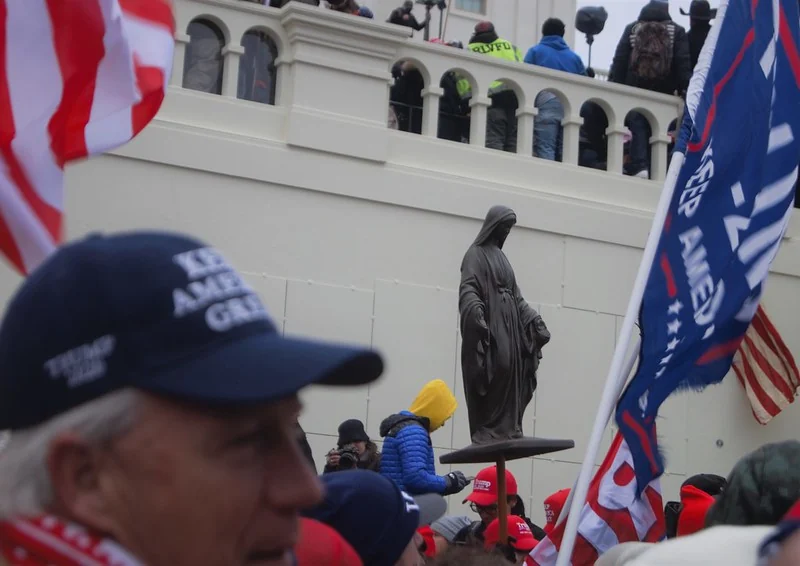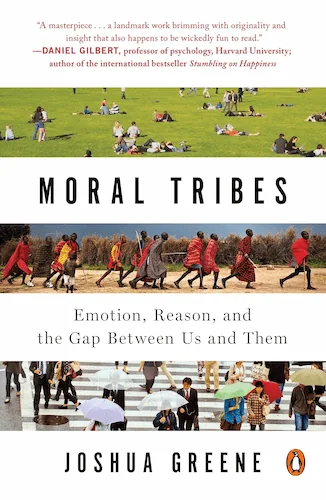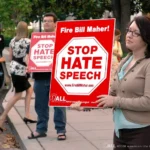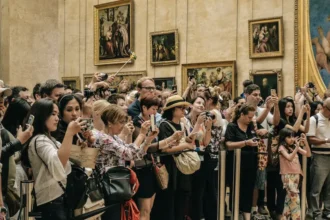The conceptual status of political identity has undergone a significant transformation. No longer reducible to a set of preferences over institutional arrangements, it now operates as a structure of meaning tied to personal worth, group affiliation, and moral allegiance. What once invited deliberation now demands affirmation.
Political belonging has shifted from the terrain of policy to that of personhood—anchored not in interests, but in convictions that are emotionally charged and culturally sacralized. This shift redefines the very conditions under which disagreement can occur.
This shift is not anecdotal. As Finkel et al. demonstrate, political sectarianism now rivals religious partisanship in intensity, manifesting in moral disdain, avoidance behavior, and affective polarization. Political identities have come to function like faiths: not because they are irrational, but because they are rooted in intuitive moral frameworks that resist external challenge.
When Political Identity Becomes Personal
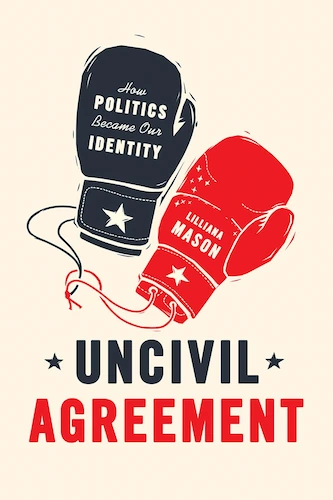
Historically, political affiliation expressed one’s views on taxes, welfare, education, or foreign policy. These preferences were negotiable, subject to revision, and open to deliberation.
But recent studies show that political identity has shifted from an ideological stance to a psychological attachment.
In a large-scale survey, Iyengar and Lelkes observed that partisan identity now predicts social preferences more strongly than race or religion. Political categories have fused with social identity.
What does this mean? That being a progressive or a conservative is no longer just what you think—it is who you are.
As Lilliana Mason argues, the alignment of partisan identity with racial, religious, and cultural identities has produced “mega-identities” that are emotionally charged and morally loaded. Dissent within one’s group feels like betrayal; criticism from the outside becomes sacrilege.
The Moralization of Political Belonging
When identity becomes moralized, disagreement feels like offense. Jonathan Haidt argues that moral reasoning is largely post hoc—our moral intuitions come first, and we use reasoning to justify them after the fact.
These intuitions are shaped by evolutionary pressures and reinforced through cultural group membership, which explains why political disagreement can feel like a violation of shared moral codes.
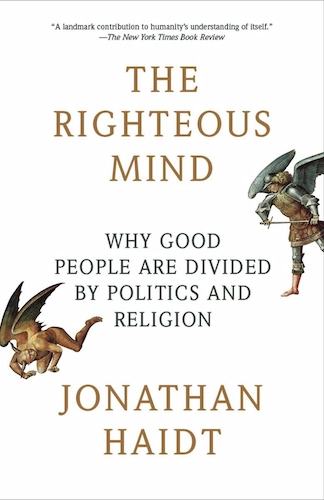
Joshua Greene approaches the issue from a dual-process perspective: he distinguishes between automatic, intuitive responses (“the moral gut”) and controlled, deliberative reasoning.
While our instincts may serve us well within groups, Greene argues that resolving intergroup conflict in a pluralistic society requires engaging our slower, more rational cognitive systems.
Without this shift, democracy risks becoming captive to moral reflex rather than cooperative deliberation. These intuitions form early and are reinforced by group dynamics.
Once moralized, beliefs become resistant to evidence and immune to counterargument. Disagreement is not processed as a difference in reasoning but as a failure of character.
This is the foundation of what Johnson et al. call “moral tribalism”—the tendency to divide the world into morally righteous in-groups and morally deviant out-groups.
Under such conditions, the political opponent is no longer just wrong, but dangerous, immoral, even inhuman. The public square becomes a field of moral combat.
Secular Faith and the End of Debate
The transformation of political identity into a kind of secular faith reshapes how societies manage disagreement. Faith is not up for debate; it demands affirmation.
Similarly, political beliefs now operate as sacred commitments: they rely on rituals, symbols, and moral boundaries. The flag, the slogan, the identity marker—these are no longer rhetorical tools but badges of virtue.
This dynamic also explains the rise of emotional defensiveness in political discourse. As political identity fuses with personal identity, any challenge feels like an existential threat.
Disagreement is experienced as an attack on the self. The space for persuasion narrows; the incentive to listen disappears. What remains is performance, loyalty, and symbolic affirmation.
Durkheim might have seen this as a reconstitution of the sacred in secular form. But unlike traditional religion, these new creeds lack structures for reconciliation. There is no confession, no absolution—only expulsion. One does not argue with heretics; one disavows them.
Platforms, Polarization, and the Architecture of Belief
This transformation is amplified by the architecture of digital platforms. As Cass Sunstein has shown, social media rewards moral certainty, emotional language, and in-group validation over nuance or compromise. Algorithms reinforce prior beliefs, encourage ideological sorting, and filter out dissenting voices. In this environment, identity becomes performative and absolutist.
Moreover, studies show that misinformation spreads more readily when it aligns with group identity. Pennycook and Rand found that users are more likely to share political content not because they believe it is accurate, but because it supports their partisan allegiances. In their experiments, factual accuracy played a secondary role to political alignment in determining what people were willing to endorse publicly.
These mechanisms do not merely polarize; they institutionalize belief. They transform psychological tendencies into behavioral patterns, then into cultural norms. The result is a politics that feels less like governance and more like group sanctification.
Can Pluralism Survive Moral Identity?
The democratic ideal rests on the assumption that disagreement is tolerable, even productive. But when political identity becomes moral identity, pluralism is reinterpreted as moral relativism, and compromise becomes capitulation. The very foundations of liberal democracy—deliberation, tolerance, and mutual recognition—erode under the pressure of absolutist belonging.
Is there a way back? Perhaps not to a politics without passion, but to one where conviction coexists with humility. Where loyalty to principle does not require hostility to persons. Where debate can remain fierce, but not fatal.
This would require more than policy reform. It would demand a cultural reorientation: from righteousness to curiosity, from tribalism to civic solidarity. And from political faith to political responsibility.


